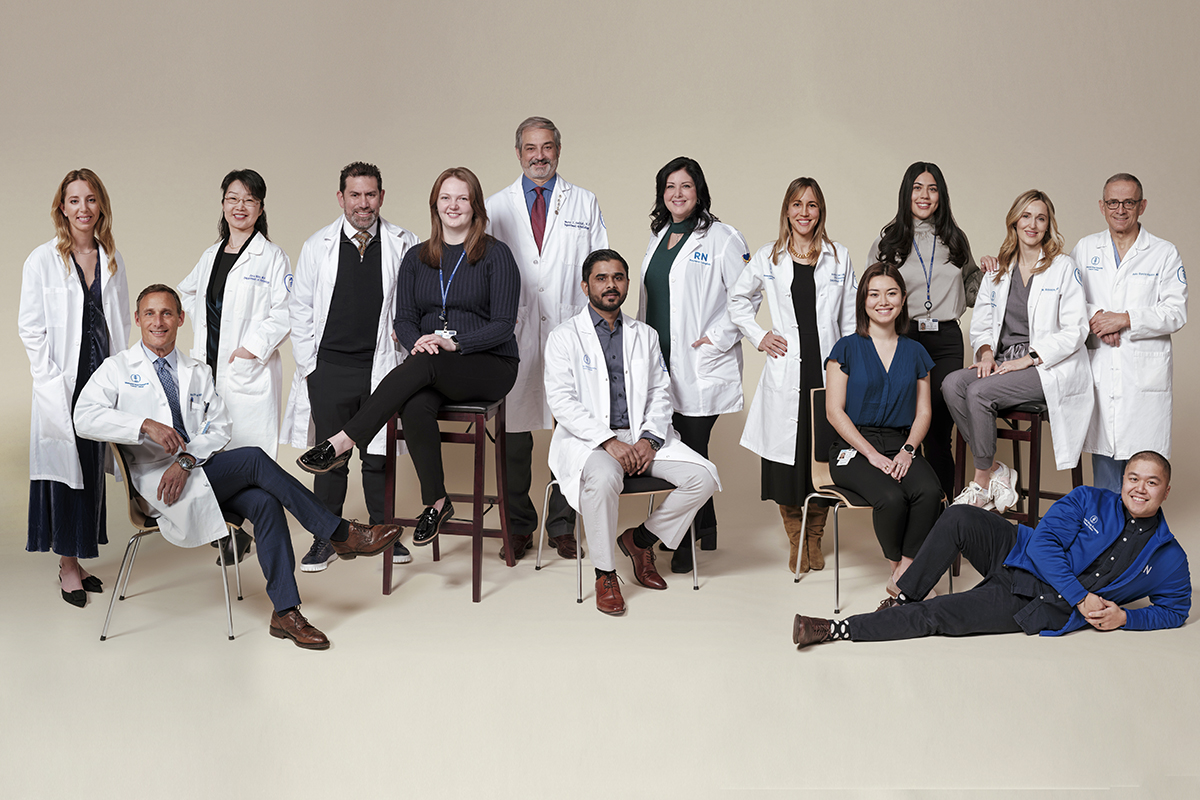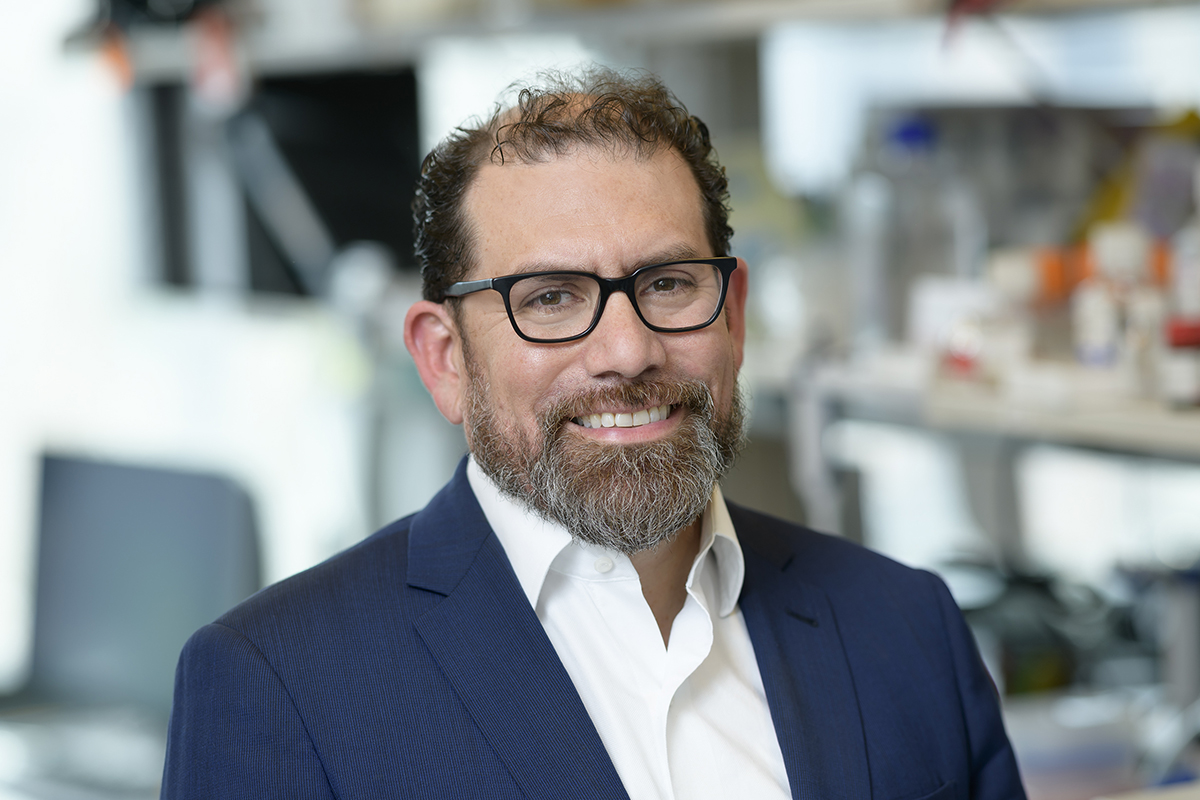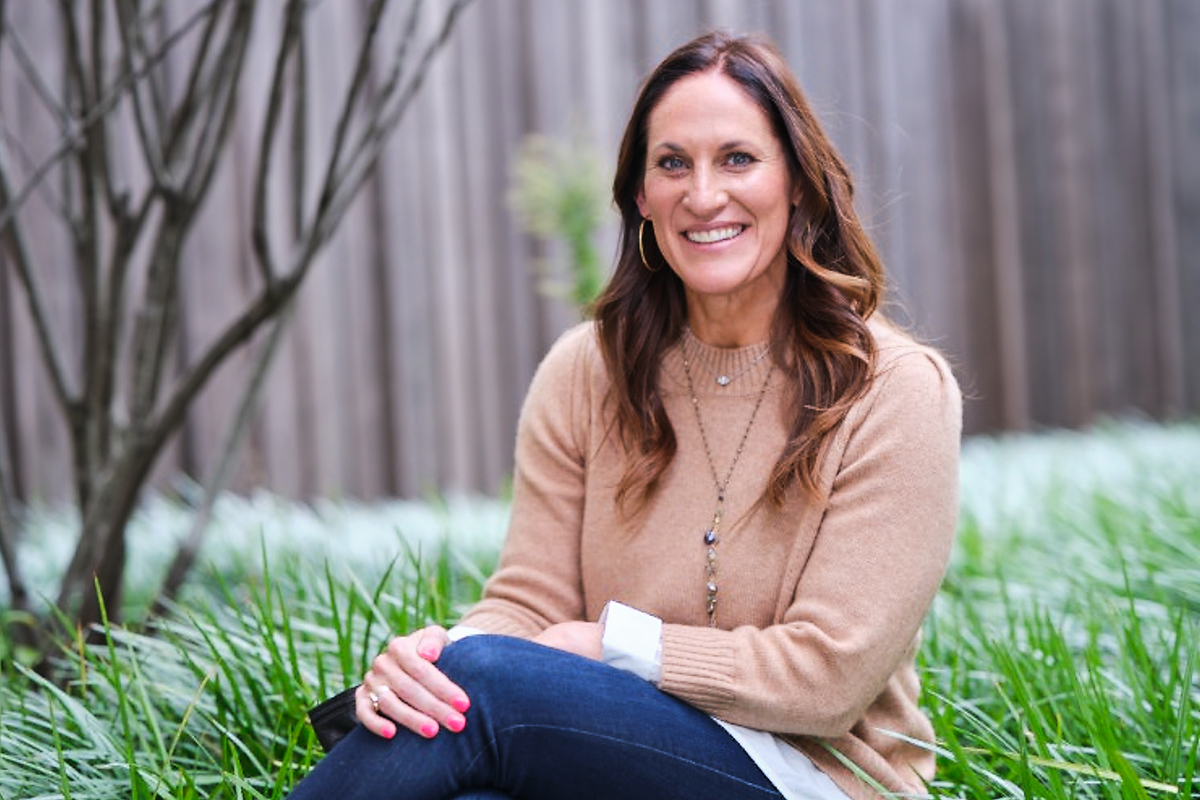
Kelly Spill took part in the clinical trial and says: “It was like suddenly the rain had stopped and we were getting a rainbow.”
“I’d always dreamed of having a huge family.”
For Kelly Spill, learning she had rectal cancer didn’t only mean facing a potentially life-threatening disease.
The diagnosis also threatened many of the things she held dearest in life.
Kelly was diagnosed at 28, just months after giving birth to her son, Jayce. She and her husband, John Bonito, were heartbroken to learn that the standard treatment for rectal cancer — usually a combination of surgery, radiation, and chemotherapy — could make another pregnancy nearly impossible.
“A specialist told me I would probably never be able to carry a second child,” Kelly recalls.
Hoping for the best, Kelly joined a clinical trial (research study) being conducted exclusively at Memorial Sloan Kettering Cancer Center (MSK). The goal was to help people like Kelly overcome rectal cancer while preserving their quality of life — using immunotherapy alone.
That would mean avoiding surgery, radiation, and chemotherapy, which can have life-altering consequences for people with rectal cancer. Instead, participants would have infusions of an immunotherapy agent every few weeks, while their tumors were closely monitored.

(From left) Jenna Sinopoli, MSN; Martin Weiser, MD (seated); Jinru Shia, MD; Luis Diaz Jr., MD; Jill Weiss, BS (seated); Marc Gollub, MD; Miteshkumar Patel, MS (seated); Raylene Langis, BSN, RN; Andrea Cercek, MD; Mina Ito, BS (seated); Alexa Colon, BS; Rachel Rassam, NP (seated); Julio Garcia-Aguilar, MD, PhD; and Joe Bacani, BSN, RN (on floor)
The trial was small, with 18 patients enrolled when results were announced in June 2022. Like Kelly, all the participants had a specific and quite rare genetic mutation in their tumor that made them eligible. This mutation — classified as mismatch repair-deficient, or MMR(d) — occurs in only about 5% to 10% of people diagnosed with rectal cancer.
The MSK team watched with growing excitement as one patient after another saw their tumor shrink, often so quickly that it even surprised the doctors involved.
The results of the trial were so astounding that they made headlines around the world when they were announced in June. All 18 people in the trial saw their rectal cancer disappear — every single patient, including Kelly. Experts say that kind of result has never been seen before in a cancer trial. Statistician James White, who works closely with MSK researchers, calculated the odds of such an outcome at a trillion to one.
Kelly says, “It was like suddenly the rain had stopped and we were getting a rainbow.”
Today, the clinical trial continues to enroll patients and change lives. The approach of using immunotherapy alone against tumor types with the same genetic mutation is also being investigated in other forms of cancer, potentially opening a new avenue of therapy for many people.
As for Kelly and her husband, they are thrilled to announce that she is pregnant, and they look forward to the birth of their second child.
Using Immunotherapy Alone To Treat Rectal Cancer

Medical oncologist Andrea Cercek, MD, is co-leader of the rectal cancer clinical trial at MSK
The MSK clinical trial was led by medical oncologist Andrea Cercek, MD, Section Head of Colorectal Cancer, and physician-scientist Luis Diaz Jr., MD, Head of the Division of Solid Tumor Oncology.
“The standard treatment for rectal cancer can work well,” explains Dr. Cercek. “But surgery, radiation, and chemotherapy can be particularly hard on people with this cancer because of the location of the tumor. They can suffer life-altering bowel and bladder dysfunction, incontinence, sexual dysfunction, and infertility.”
To avoid these awful side effects, Drs. Cercek and Diaz designed the clinical trial to investigate if the body’s own immune system could be deployed to attack cancer cells, using a form of immunotherapy called a checkpoint inhibitor.

Medical oncologist Luis Diaz Jr., MD, is co-leader of the rectal cancer clinical trial at MSK.
Previous work by Dr. Diaz had shown that checkpoint inhibitors are effective in targeting rectal tumors that harbor the genetic mutation MMR(d), which prevents tumor cells from fixing damaged DNA. Dr. Diaz explains: “We wanted to see if we could make a tumor with the MMR(d) mutation recede and eventually disappear using only immunotherapy to spare patients these life-altering consequences of standard treatment.”
Life-Changing Results
Like Kelly, the other patients enrolled in the trial hoped their cancer could be treated with immunotherapy alone.
Another trial patient, Avery Holmes, recalls: “It went from this terrifying experience of ‘Am I going to die?’ to ‘Maybe I can get through this.’ I can’t imagine what my life would be like if this clinical trial wasn’t available.”
Sascha Roth was the first patient to join the clinical trial. “At a hospital at home in Washington, D.C., doctors wanted to start me on standard treatment, which would begin with chemotherapy,” she says. “But I had also consulted the specialists at MSK. They told me standard treatment was not a good fit for me because I have Lynch syndrome — an inherited trait that often leads to colorectal cancer. As it turned out, I was a perfect candidate for this trial.
After her treatment at MSK, Sascha has no evidence of cancer more than two years later — a key milestone in treating rectal cancer. “My whole experience has been like a dream,” she says. And she has seamlessly returned to her vibrant social life while running her family’s home decor business.
The trial’s promise also energized the MSK staff dedicated to the research. This large team included clinical trial nurse Jenna Sinopoli, MSN; clinical research supervisor Jill Weiss; medical oncologist Melissa Lumish, MD; the colorectal surgery team who carefully monitored the tumor responses; and many people who checked in patients, drew blood, ran tests, logged results, organized data, and more.
“One day, a young woman introduced herself to me at the elevator,” recalls Dr. Cercek. “She said: ‘I’m the person who runs the biopsies from clinic rooms into the lab to be tested. It’s so amazing to be part of your study because everyone is so happy when the results come back and the tumor is gone — it’s just so inspiring.’ ”
Expanding Access to More People With Rectal Cancer
“The response to the trial has been overwhelming,” says Dr. Diaz. “We nearly doubled the enrollment of patients in two months after the research was made public. There are now 29 rectal cancer patients in the trial — and more continue to enroll.”
MSK is also expanding the trial to hospitals that are members of the MSK Cancer Alliance, including the Hartford HealthCare Cancer Institute in Connecticut, the Lehigh Valley Cancer Institute in Pennsylvania, the Miami Cancer Institute at Baptist Health South Florida, and MSK collaborator New York Cancer & Blood Specialists.
An FDA advisory committee in February 2023 authorized a larger clinical trial to be led by MSK involving multiple clinics. This would be a key step in gaining full FDA approval so the approach could be used for patients at other hospitals who are facing rectal cancer and have the MMR(d) mutation.
A Possible New Approach to Solid Tumors
MSK is also using the success of the rectal cancer trial to expand this novel approach to more cancers.
Dr. Cercek explains: “The MMR(d) mutation that we targeted in the trial is only found in 5% to 10% of all rectal cancers. But the mutation is also found in solid tumors, including gastric (stomach), colon, liver, bladder, esophageal, prostate, pancreatic, and other cancers. That means we could potentially help a lot more people.”
Drs. Cercek and Diaz and colleagues at MSK have opened new clinical trials to investigate the approach in other cancers — and are now enrolling patients. These trials are open for people whose tumors have the MMR(d) mutation in all cancer subtypes, including of the colon, bladder, stomach, prostate, and liver.
Dr. Diaz, appointed by President Biden to the National Cancer Advisory Board, has coined a term for this new method — “immunoablative” therapy — which means using immunotherapy to replace surgery, chemotherapy, and radiation to remove cancer.
The new approach is also aimed at targets beyond MMR(d), including HER2, a gene that can produce too much of a protein that fuels cancer growth. That clinical trial, led by Dr. Cercek, is also open at MSK and enrolling patients. Says Dr. Diaz: “The rectal cancer clinical trial is just the tip of the iceberg.”
Even people who understand that the new approach isn’t going to help their loved ones are emailing Dr. Cercek. “People have reached out to say, ‘My relative has advanced disease, and we know things are not going well. But thank you for giving us hope that something better will come in the future.’ ”
‘A Whole Better Version of Me’

Sascha Roth was the first person to join the clinical trial and traveled from Washington, D.C., for care at MSK.
Today, many of the patients who participated in the trial are helping others. Kelly counsels others diagnosed with rectal cancer and says she has found a new perspective on life. “I’m not the same person that I was before cancer. I love who I am, and I love who I was. But this is a whole better version of me these days.”
Sascha says one key takeaway of the experience for her is that it really does take MSK to make these kinds of breakthroughs. “MSK research and cancer care is simply years ahead of where other hospitals — even really good ones — are or should be.”
Dr. Diaz and Dr. Cercek’s research has been made possible by the philanthropic support of the MSK donor community, including Cycle for Survival®
Dr. Diaz holds the Grayer Family Chair..
